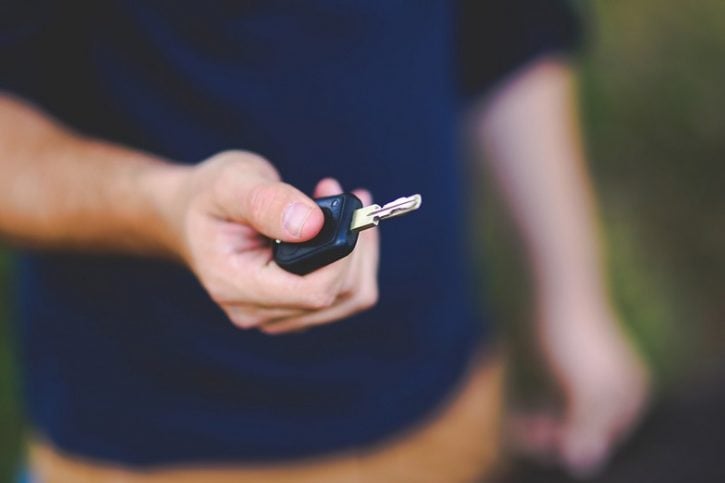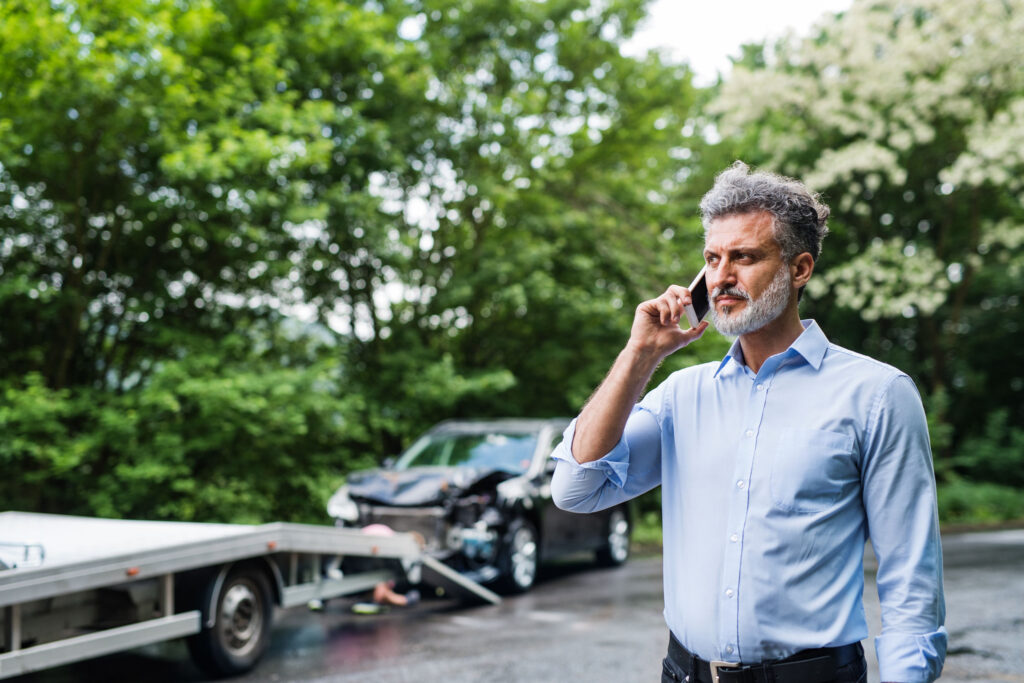
Whether you’re traveling on vacation or business, renting a car can make your trip a whole lot easier. But if you’re involved in a Chicago rental car accident, you may be at a loss as to what you’re supposed to do.
Do you call your personal car insurance to see if it covers you after a rental car wreck? Or, does your rental car agreement company need to be notified first?
You may even wonder if you should contact the company of the credit card that you used to rent the vehicle in Chicago. Because ultimately you want to know who pays for you and/or any passenger medical bills and the damage to the vehicle?
Read on for answers to find these questions and more provided by our Chicago personal injury lawyers.
Steps to Take After an Accident in a Rental Car
What you do in the immediate aftermath of suffering a personal injury in a rental car crash can have a significant impact on your life, from filing an accident claim to obtaining fair compensation for your injuries. Here are a few steps that you should take to help ensure that you receive just compensation for injuries and other damages after a Chicago rental car wreck.
Related topic: When do accidents in Illinois become personal injury claims
Make Sure You’re Not in Immediate Danger

In many cases, car wrecks catch you off guard, with little time to process what’s happening. There might be a million thoughts running through your mind right after an accident, so it’s important to keep a cool head and make your safety your number-one priority.
This means checking yourself for any obvious signs of injury. If you have passengers with you, be sure to check on them as well. If you are able to safely exit your car and check on the other driver(s) involved, do so. If anyone is hurt or requests medical assistance, call 911 immediately.
If you or someone else is significantly injured, do not try to move them unless it is absolutely necessary and instead wait for help to arrive.
If your vehicle is blocking traffic or presents a significant safety hazard and is still in drivable condition, you may need to move it to the shoulder to prevent additional traffic accidents. However, if at all possible, it is recommended to leave your vehicle as is to help police establish how the accident occurred.
Of course, if your car is smoking or on fire, move as far away from the scene as possible to prevent potential burn injuries and contact the fire department. Making sure that everyone is safe and gets the prompt medical attention they need is crucial, so don’t overlook your own injuries just because you’re worried about the damage to your car. When in doubt, go to the hospital for an evaluation.
Related topic: Steps to take following a Chicago head-on collision
Report the Accident to Police
Under Illinois law, any car wreck which results in bodily injury, death, or more than $1,500 in property damage must be reported to local law enforcement. If the scene is secure, the next step is to report the accident to Chicago police.

Beyond following the law, filing an accident report is an important step in properly documenting what happened during the crash. While you wait for an officer to arrive, exchange contact information with the other driver and take as many photos as possible of the accident scene and any damage to your rental vehicle. You can also ask potential witnesses for their contact information. The more documentation you have, the better.
The responding officer should investigate the crash in order to prepare a report. They may ask you for a statement about what happened. Remember to stick to the facts and avoid any speculation, admissions of guilt, or apologies. Be sure to request a copy of the report for your own records.
Contact the Rental Car Company
You’ll want to contact the rental company as soon as possible after an accident in a rental car, even before calling your own insurance company. What will happen after you notify the company about the accident will depend on several factors, including whether or not you purchased additional liability coverage when you rented the vehicle.
Ask the representative what they need from you regarding documentation of the crash, including photos, a written statement, names of witnesses, a copy of the police report, etc. You should also review the fine print of your rental car agreement to get a better understanding of your financial responsibilities.
Call You Car Insurance Company
As soon as you’ve notified the car rental company, reach out to your own car insurance company. If you’ve opted out of the additional coverage from the rental car agreement, you’ll likely be relying mostly on your own car insurance policy. If you have collision and comprehensive coverage on your car, this will likely apply to any car you rent, but you may still be responsible for paying a deductible.
Related topic: Insurance interaction mistakes to avoid
Who Is Liable in Accidents Involving Rental Cars?
As no two accidents are the same, here are a few different scenarios that may determine who is liable in an accident involving a rental car:
- If you do not already have personal auto insurance in Chicago and are renting a car, rental car agencies must give minimum liability coverage of $50,000 for injuring or the death of an individual; $100,000 for injuring or the death of two or more; and $50,000 for damage to property.
- If a car renter already has personal auto insurance in Chicago, they should confirm with their insurance agency whether their existing policy would pay if there were an accident with damages that you caused, especially if outside of the country.
- If you have substantial assets, you may want to obtain additional insurance protection. Supplemental liability insurance (SLI) provides up to $1 million for liability protection. This is usually more than most car owners have with their personal insurance. This generally runs $15 a day.
- If you do not have substantial assets, you might be fine declining SDI coverage, since the other party in a crash would not be able to obtain a lot from suing you.
- When an individual pays for a car rental car with certain credit cards, they will be covered for damage or theft. It is important to note that coverage varies with the card. Someone who frequently rents cars should investigate which credit cards have the best collision damage provisions. Especially since the rental agencies Collision Damage Waiver (CDW) insurance start at $10+ per day, depending on car and place.
- For the card’s CDW or Loss Damage Waiver (LDW) coverage to be valid, the renter must decline coverage. Rental car insurance will not cover any damages if an unauthorized person drives the car.
Why You Should Reach Out to a Chicago Rental Car Accident Lawyer
Rental car accidents can be much more complicated than regular car accidents, especially if the accident happened out of your home state, involved multiple vehicles, or an uninsured driver.
Between trying to communicate with multiple insurance companies and seeking treatment for your own injuries, the aftermath of being involved in an accident in a rental car can be overwhelming. An experienced injury attorney will do what is necessary to help alleviate some of this pressure so that you can focus on your recovery.
The statute of limitations on Illinois car accidents is another good reason to contact a Chicago rental car accident lawyer as soon as possible after a wreck. To get the biggest settlement for your medical bills, lost wages, and pain and suffering, you need the support of a qualified legal team.
At Lerner and Rowe Injury Attorneys, our team has decades of combined knowledge and useful resources to help injured victims obtain fair compensation for all kinds of accidents—including car rental crashes in Chicago.
To find out how our Chicago rental car accident lawyers can help, contact us today by calling 708-222-2222. Representatives are also standing by via our LiveChat feature, or you can request your free case review using this form. Consultations are always free, and you won’t pay us anything until we make a recovery on your behalf.



